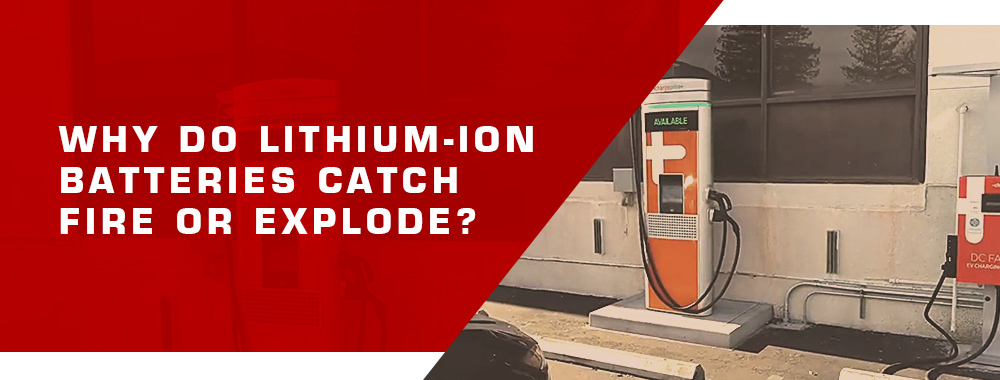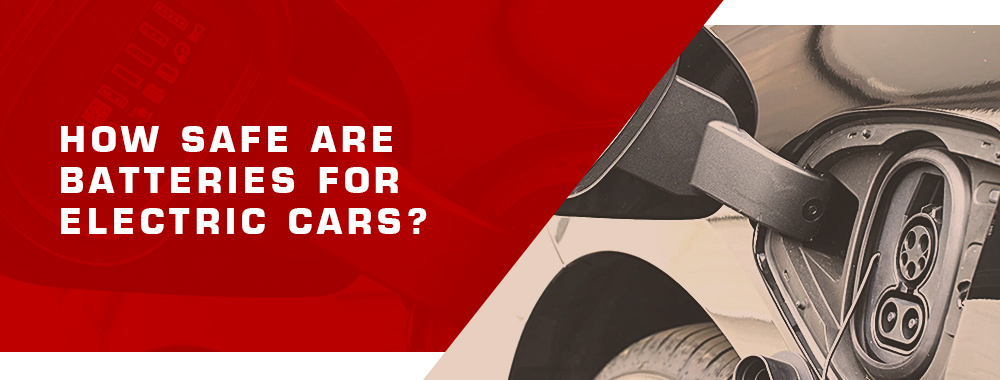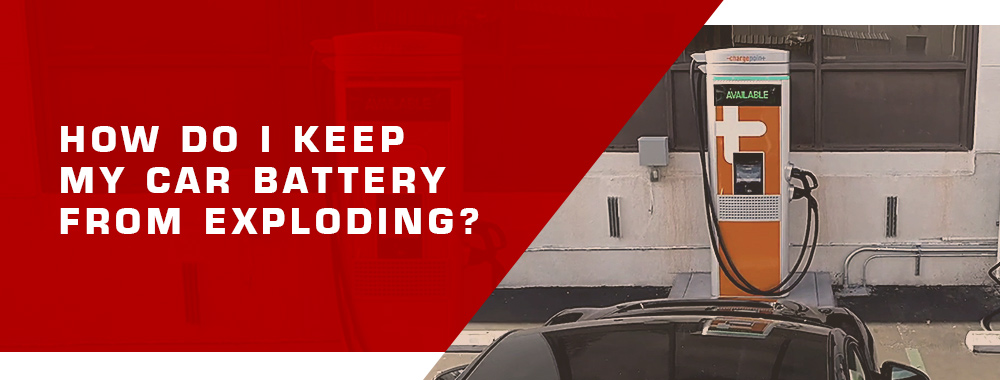Can lithium-ion batteries catch fire?
These batteries can sometimes catch fire. According to experts, this is not a common phenomenon—only about one in 12 million have this problem. They are extremely sensitive to high temperatures, which can cause them to degrade quickly. They also begin to degrade as soon as they leave the factory, whether they are used or not. The warranty life of an electric car battery is several years. You can read more about battery life here.

Fortunately, serious explosions caused by lithium-ion batteries are infrequent. However, if they are caught in the wrong conditions, there is a small chance that they will catch fire or explode.
Lithium-ion batteries are used in all types of products today, perhaps most commonly in electronic devices such as laptops, cell phones, and cameras. They are also an effective option for large batteries, such as in power systems and electric cars. Unfortunately, if lithium-ion batteries are subjected to improper conditions, there is a small chance that serious failure could occur.
Lithium-ion batteries have all the elements necessary for a self-sustaining fire.
What is a dangerous battery made of?
A lithium-ion battery stores and releases its electrical energy through electrochemical reactions. When electrical energy is consumed/discharged from the battery, lithium ions move from one electrode to the other. The electrodes are immersed in a liquid called an electrolyte. This provides the movement of the ions and consists of lithium salt and organic solvents. It is these organic solvents that are the main fire hazard of lithium-ion batteries. In addition, the positively charged electrode (cathode) in the battery contains oxygen. Oxygen can be released if the battery is subjected to certain stresses, such as internal short circuits, excessive heat, etc. This means that lithium-ion batteries have all the elements necessary for a self-sustaining fire. You can read more about the construction of the battery here.

Battery manufacturers for electric vehicles do everything they can to keep electric vehicle batteries safe by installing intelligent control systems to prevent overheating and other problems. Batteries get hot when charging and discharging, but cars are designed to stay cool. Liquid cooling systems can sometimes help in high-performance electric cars.
Despite this, there have been some instances of electric vehicle fires, but very few of these incidents have been caused by battery failure. More often than not, they are caused by accidents or incidents that would cause any vehicle to catch fire. For example, in 2013, a Tesla Model S hit a large piece of metal at high speed. Commenting on that incident, which led to a limited fire, Tesla CEO Elon Musk noted that electric car batteries contain only about one-tenth the energy of a full fuel tank. This limits the danger they pose in an accident.
In 2017, the U.S. National Highway Traffic Safety Administration conducted a study. It found that lithium-ion batteries were comparable or slightly less likely to cause serious fires than conventional vehicles. The performance of lithium-ion batteries can still be improved, experts report. As more and more electric cars take to the roads, we can be assured that they are just as safe as the conventional vehicles they replace.

Since several causes can lead to a car battery explosion, it is more appropriate to evaluate the cause of a car battery explosion before making a decision. Generally, a driver fears the possibility of an overcharged battery exploding. Avoiding a battery explosion is easier by making sure that the battery is not overcharged.
After discussing the parameters regarding temperature and weather, it is best to make sure that both elements are in harmony with the acceptable parameters of our batteries.
It is very important to keep your car out of the summer heat because it affects the battery chemistry and increases the flow of electrons. On the other hand, the winter cold slows down the battery, which affects battery performance. In another article, we discussed how much it costs to replace an electric car battery [09] if you do not have a warranty on it.
How will I know if my car battery is damaged?
A damaged car battery is very easy to recognize because it does not help the car start. In some cases, a damaged battery will also generate a spark that will explode the battery, and this may be less or more dangerous given the intensity of the explosion.
Just read about the safety features in modern EV batteries. Feeling more confident about my decision to switch to an EV. It’s amazing how technology has evolved to make these vehicles as safe as they are efficient. Anyone else feel the same?
I had my reservations initially, but the more I learned about the safety measures in place, the more comfortable I became. It’s reassuring to know the lengths manufacturers go to ensure safety.
Anyone have experience with EVs in extreme weather? I live in a very cold climate and I’m concerned about battery performance. Does the cold significantly affect it?
Living in Minnesota, I can say that cold weather does impact the battery, but not drastically. Preconditioning the car and keeping it charged help a lot.
I’m curious about the long-term sustainability of EV batteries. We talk about being eco-friendly, but what about battery disposal and recycling? It’s a topic that needs more attention.
You’re right, battery disposal is an important issue. The good news is that recycling technologies are improving, and there’s increasing focus on developing sustainable battery lifecycle practices.
Recently switched to an EV and noticed my electricity bill has gone up. It’s expected, but I wonder if solar panels could offset the cost. Has anyone tried this combo of EV and solar energy?
I have solar panels and an EV. It’s a great combination. The panels significantly reduce the cost of charging the car, plus it feels good to use renewable energy.
It’s fascinating how lithium-ion batteries have evolved. I remember when they were just for small electronics, and now they power cars! What will the next big advancement in battery tech be, I wonder?
Heads up, there’s a recall for a specific EV model due to battery issues. Always good to stay updated on these things for safety. Here’s a link to the recall notice.
Thanks for the info! Checked and my model isn’t affected, but it’s a good reminder to keep an eye on safety updates. Always better to be proactive.